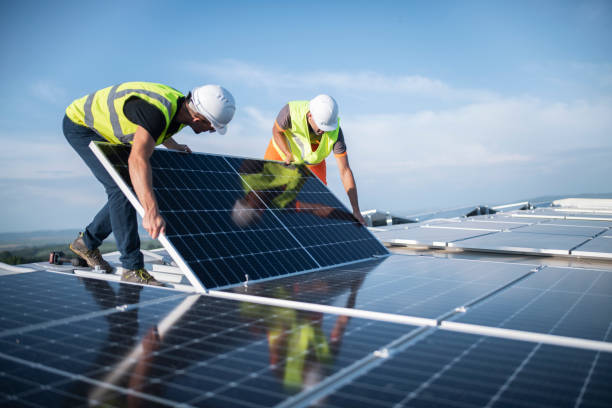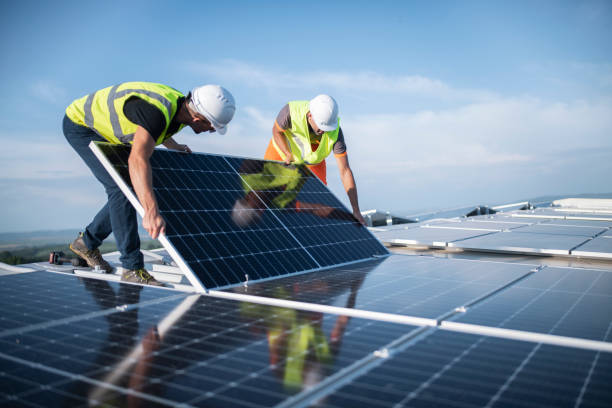Understanding Your Home Backup Electricity Options
When unexpected power outages strike, having a reliable backup power solution becomes essential for maintaining comfort and safety in your home. Power generators offer peace of mind by providing electricity during emergencies, with various options available from traditional fuel-powered models to modern battery storage and solar solutions. Understanding the differences between these systems can help you make an informed decision about which generator best suits your household needs.

Power generators serve as crucial backup systems during power outages, ensuring that essential appliances and systems in your home continue to function when the main electrical grid fails. Whether caused by severe weather, equipment failures, or scheduled maintenance, power interruptions can disrupt daily life and potentially create safety hazards. By investing in the right generator system, homeowners can maintain comfort, preserve perishable food, power medical equipment, and keep communication devices operational during emergencies.
Understanding Generators with Battery Storage
Generators with battery storage represent a modern approach to backup power that combines traditional generation capabilities with energy storage technology. Unlike conventional generators that run continuously while providing power, these hybrid systems store electricity in batteries that can be drawn upon when needed. This design offers several advantages, including quieter operation, reduced fuel consumption, and the ability to provide instantaneous power without startup delay.
Battery storage generators typically consist of a power generation unit (often solar panels or a fuel-powered generator), a battery bank, and an inverter system. The batteries charge when power is available—either from the grid during normal operation or from the generator during an outage—and discharge when needed. This arrangement allows for more efficient energy use and can provide cleaner power for sensitive electronics.
Selecting Standby Generators for Home Use
Standby generators represent the most comprehensive solution for home backup power. These permanently installed systems are designed to automatically detect power outages and start providing electricity within seconds, often without any user intervention. Connected directly to your home’s electrical panel and fuel supply (typically natural gas, liquid propane, or diesel), standby generators can power entire homes or selected circuits depending on their capacity.
When selecting a standby generator for home use, several factors deserve consideration. First, determine your power requirements by calculating the wattage needed for essential appliances and systems. Next, consider fuel availability and preferences—natural gas offers convenience but requires existing lines, while propane and diesel need storage tanks but provide reliability during extended outages. Finally, evaluate installation requirements, maintenance needs, and noise levels, as these factors significantly impact long-term satisfaction with your system.
Electricity Generators for Home: Types and Options
The market offers several distinct types of electricity generators for home use, each with specific advantages and limitations. Portable generators provide flexibility and lower initial costs but require manual setup and refueling. They typically run on gasoline, propane, or diesel and can power selected appliances through extension cords or a transfer switch connection.
Inverter generators represent a more advanced portable option, delivering cleaner power suitable for electronics while operating more quietly and efficiently than conventional portables. For those seeking renewable solutions, solar generators combine photovoltaic panels with battery storage to capture and store solar energy without fuel costs or emissions, though they typically offer lower power capacity and depend on weather conditions.
Whole-house standby generators provide the most comprehensive coverage but come with higher purchase and installation costs. The right choice depends on your specific needs, budget, and preferences regarding fuel type, noise tolerance, and maintenance capabilities.
Exploring Solar Generators Available on Amazon
The convenience of online shopping has made Amazon a popular marketplace for solar generators, offering a wide range of options for consumers interested in renewable backup power. These portable power stations combine battery storage with solar charging capabilities, allowing users to generate and store electricity using solar panels that can be purchased separately or as part of a complete kit.
Solar generators available on Amazon range from compact units designed for camping and small electronic devices to larger systems capable of powering refrigerators and other essential home appliances during outages. When shopping for these systems, pay attention to battery capacity (measured in watt-hours), inverter rating (measured in watts), charging options, and expandability. Many modern units feature multiple output options, including standard AC outlets, USB ports, and 12V DC connections to accommodate various devices.
Comparing Options for Home Backup Power
Selecting the best generator for home backup power requires evaluating different technologies against your specific needs and circumstances. Traditional fuel-powered generators offer reliability and higher power output but require fuel storage and regular maintenance. Battery storage systems provide clean, instant power with less noise and maintenance but typically at higher costs and with limited runtime before recharging is necessary.
| Generator Type | Initial Cost Range | Fuel Source | Power Output | Key Benefits | Limitations |
|---|---|---|---|---|---|
| Portable Gas | $500-$2,000 | Gasoline/Propane | 2,000-10,000W | Affordable, versatile | Manual setup, noise, emissions |
| Inverter | $1,000-$4,000 | Gasoline/Propane | 1,000-7,500W | Cleaner power, quieter | Higher cost per watt |
| Home Standby | $3,000-$15,000+ | Natural Gas/Propane | 7,000-24,000W+ | Automatic operation, whole-house power | High installation cost, fixed location |
| Solar Generator | $1,000-$5,000+ | Solar/Grid | 1,000-5,000W | No fuel, quiet, indoor-safe | Weather-dependent, limited capacity |
| Battery Storage System | $5,000-$15,000+ | Grid/Solar | 3,000-10,000W+ | Instant power, clean energy | Higher upfront cost, limited runtime |
Prices, rates, or cost estimates mentioned in this article are based on the latest available information but may change over time. Independent research is advised before making financial decisions.
When evaluating these options, consider your power requirements during outages, budget constraints, fuel availability in your area, noise restrictions, and maintenance capabilities. Many homeowners find that combining technologies—such as pairing a smaller portable generator with a battery storage system—provides the most comprehensive and flexible backup power solution.
Maintenance and Safety Considerations
Regardless of which generator type you choose, proper maintenance and safety practices are essential for reliable operation when you need backup power most. Fuel-powered generators require regular engine maintenance, including oil changes, filter replacements, and test runs to ensure readiness. Battery systems need monitoring of charge levels and occasional capacity testing, while solar generators benefit from keeping panels clean and properly oriented.
Safety considerations include proper ventilation for fuel-powered units to prevent carbon monoxide poisoning, appropriate electrical connections to avoid backfeeding into utility lines (which endangers utility workers), and correct fuel storage practices. Following manufacturer guidelines for operation, maintenance, and installation helps ensure that your backup power system remains safe and reliable throughout its service life.
Power generators provide essential protection against the disruption and potential hazards of electrical outages. By understanding the various options available—from traditional portable units to advanced battery storage systems and renewable solar generators—homeowners can select the solution that best balances their needs for reliability, capacity, convenience, and budget. With proper selection, installation, and maintenance, a quality generator system offers valuable peace of mind and practical benefits during power emergencies.




